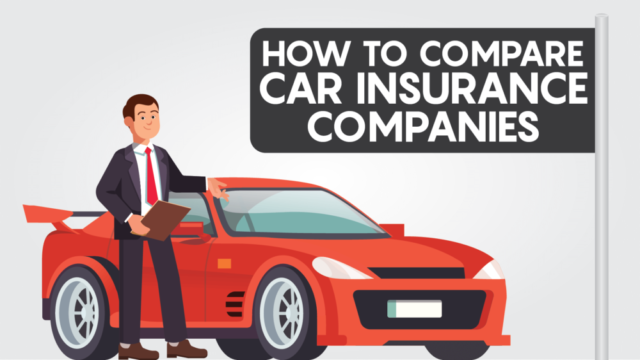HOW TO COMPARE CAR INSURANCE QUOTES
You have many different auto insurance quotes available, but does the price just tell you what the best deal is? Here is how to compare them. Typically, when looking for auto insurance, you will go to auto insurance comparison sites to find the best deal on a policy. But the process is not always as simple as it sounds.
Each car insurance policy contains its own details, and when you are viewing quotes from various companies, there may be differences in service that are not always obvious from price alone.
Auto insurance comparison websites are a great way to compare auto insurance quotes, if you know what to look for. Make sure the details between each quote are really the same, otherwise you can get a lower price quote, but for lower coverage.
How can you compare auto insurance quotes with a certain level of confidence that you will get the expected coverage at a lower rate? Read on to find out.
GET QUOTES FROM SEVERAL INSURANCE COMPANIES

The best way to approach evaluating auto insurance quotes is to get quotes from multiple operators, four or five at a time, and match specific details between them.
One company may offer an especially low rate compared to others. When that happens, your radar should work immediately. If you get quotes from five companies and four of them are trading around $ 100 a month, but one hits $ 65, you have good reason to suspect.
The lowball company may be excluding certain types of coverage or making assumptions about your driving profile that are not true.
MAKE SURE INSURANCE COMPANIES ARE REPUTABLE
Buying car insurance is not about getting the lowest price. If you go to the company that offers the lowest premium, but find that they have a long history of not paying claims, the money you will pay for the policy will be wasted entirely.
The best way to investigate an auto insurance company is to verify them through objective sources.
You can find general ratings through A.M. Best, which is widely recognized as the leading rating agency for the insurance industry.
The following grades represent strong insurance companies:
A ++, A + (Superior)
A, A− (Excellent)
B ++, B + (good)
Grades below B + may indicate that the company is in financial trouble. A company that has financial difficulties will be more likely to not pay claims or to pay them only partially.
You should also contact the Better Business Bureau in your area to see if complaints have been filed against the insurance company. Most likely, the complaints are related to the payment of claims, and if you see too many, it’s a clear red flag.
Finally, word of mouth can be a reliable indicator. Check and see if someone you know is covered by the insurance company and if they have ever filed a claim.
You can also do a web search by entering the name of the insurance company with the word “scam” (or a similar term) and see what appears. This is not a completely reliable method, as people often go to the web to vent, but if you see a consistent pattern of complaints about realistic-sounding negative situations, the company may be a poor choice.
MAKE SURE THE POLICY DETAILS ARE THE SAME FOR EACH APPOINTMENT
Most comparison websites do a reasonable job of ensuring that the policy quotes of different providers are consistent in their coverage. But sometimes there are details that can make a big difference.
For example, although each company may reflect a $ 500 deductible for the liability portion of the policy, it may not be consistent with collision and comprehensive coverage. A company may have a deductible of $ 500 for liability, but a deductible of $ 1,000 for collision and comprehensive.
VIEW CLOSE ADDITIONAL SERVICES AND EXCLUSIONS
Auto insurance policies often come with a variety of additional features. Some features may not make sense to you, but others may be significant.
For example, some auto insurance policies offer towing and labor cost coverage. In addition to basic towing services, they can offer floor tire changes, emergency starts, lockout assistance, and even gas delivery, in case you run out (hey, it happens to everyone sooner or later).
If your car is newer, that service may not be important to you, but if your car has more than.



